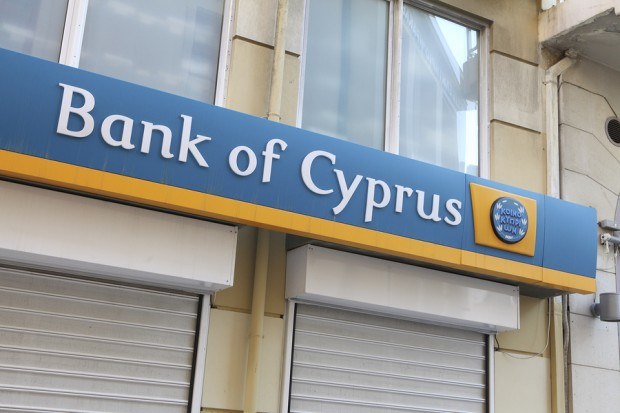The cost of insuring European bank debt against default jumped on Monday after a senior EU official said the bailout of Cyprus could be used as a template for resolving bank problems elsewhere.
The international rescue has set a precedent for the euro zone by making bank depositors and senior bondholders bear some of the cost. In previous packages for Greece, Ireland, Portugal and Spain, leaders were unwilling to force losses on either group for fear of prompting flight from banks across the region.
On Monday, however, Jeroen Dijsselbloem, the Dutch finance minister who chairs the Eurogroup, which runs the currency, made clear that investing in the zone’s banks could not be risk-free:
“If we want to have a healthy, sound financial sector, the only way is to say, ‘Look, there where you take on the risks, you must deal with them, and if you can’t deal with them, then you shouldn’t have taken them on’,” he said in an interview shortly after the Cyprus deal was struck.
The cost of insuring European banks’ senior bonds against default rose on his remarks. The Markit iTraxx senior financials index widened 14 basis points to 181. The index for subordinated bonds – riskier as they rank behind senior debt if a bank is wound up – widened 20 basis points to 302 basis points.
Some of Europe’s lenders, notably those in Spain already perceived as default risks, are likely to see borrowing costs rise as investors shun any asset they fear could be targeted for losses in any government-backed rescue, bankers said.
“Senior bank bonds are no longer sacrosanct,” said Ben Bennett, a credit strategist at Legal & General, arguing the Cyprus deal could reverse a decline in bank debt yields seen since the European Central Bank pledged liquidity last year.
“With yields on bank bonds having fallen since the summer’s (ECB) promise, such a reassessment of risk could start to reverse this process,” Bennett said.
The senior debt yield for Italy’s troubled, third-biggest bank Monte dei Paschi rose 41 basis points to 5.16 percent early last week, after an initial plan to tax Cyprus bank deposits. It has since retreated to 4.80 percent.
CHANGING RULES
Under new EU regulations, senior bondholders would bear part of the cost of future bank bailouts but that provision is not due to be enforced before 2015. Non-eurozone member Denmark is the only EU state to impose losses on senior bondholders in recent years, but after its banks were shut out of debt markets in 2011 it has moved to limit the likelihood of such losses.
However, Ireland, Spain and the Netherlands have all imposed losses on junior bondholders in bailed out banks.
The two biggest Cypriot banks have less than 200 million euros of senior debt outstanding, making losses on it a largely symbolic element of a deal intended to raise 5.8 billion euros in return for a 10-billion euro international bailout package.
And EU leaders have argued that the Cyprus rescue sets only a limited precedent for other countries, due to the extreme size of Cyprus’s bank liabilities in relation to its economy.
But many investors are also likely to focus on the fact that assets they had thought protected were not immune to losses demanded by the “troika” of international lenders:
“The lesson from this bailout is that the troika is increasingly moving towards sharing the costs of repairing the banks with bondholders,” said Lee Tyrrell-Hendry, a macro analyst at RBS.
“It has reinforced the trend of imposing losses on subordinated debt holders, but crucially the agreement crosses the line of imposing losses on senior bondholders even for banks that are still a going concern.”
(Additional reporting by Jan Strupczewski; Editing by Carmel Crimmins and Alastair Macdonald)





















 Is Risk the Main Ingredient in Ultra-Processed Food?
Is Risk the Main Ingredient in Ultra-Processed Food?  New Texas Law Requires Insurers Provide Reason for Declining or Canceling Policies
New Texas Law Requires Insurers Provide Reason for Declining or Canceling Policies  High Court Ruling on Trump Tariffs to ‘Ease Uncertainty,’ Says AM Best
High Court Ruling on Trump Tariffs to ‘Ease Uncertainty,’ Says AM Best  Machine Learning for Mutuals: What’s Working, What’s Not, and What’s Next
Machine Learning for Mutuals: What’s Working, What’s Not, and What’s Next 

